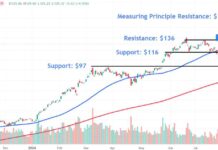Shein and Temu, two Chinese-linked e-tailers known for their ultra-low prices, are facing potential price hikes due to changes in the de minimis provision under the Biden administration. The loophole, which allows packages valued at less than $800 to enter the United States without import duties, has been a key factor in the companies’ ability to offer $5 T-shirts and $10 sweaters to American consumers. However, with the proposed policy change, prices could rise by at least 20%, impacting their competitive edge in the market.
Impact on Pricing and Business Models
Retail analysts and experts predict that the removal of the de minimis exemption could lead to a significant increase in prices for products from Shein and Temu. Neil Saunders, the managing director of GlobalData, stated that while the companies may still offer affordable prices, they may not have the same competitive edge they currently enjoy. He mentioned that the companies might respond by focusing on higher-priced items to balance out their offerings.
Furthermore, the Biden administration’s plan to bar overseas shipments of products subject to U.S.-China tariffs from the de minimis exemption could have a substantial impact on the companies’ pricing strategies. With the potential for prices to rise, Shein and Temu may need to reconsider their business models and adjust their pricing to remain competitive in the market.
Shein and Temu have seen significant growth in recent years, with Shein estimated to generate over $30 billion in revenue annually. The companies have become popular shopping destinations for U.S. consumers, attracting market share from competitors like H&M, Zara, Target, Walmart, and Amazon. However, with the possibility of price hikes, their ability to offer ultra-low prices may be challenged, leading some consumers to consider alternative retailers.
Challenges and Responses
As scrutiny of Shein and Temu intensifies, the companies face challenges related to their supply chains and compliance practices. Last year, the House Select Committee on the Chinese Communist Party launched investigations into the companies, focusing on allegations of slave labor in their supply chains. Additionally, concerns were raised about their use of the de minimis exemption to avoid import duties and scrutiny from U.S. Customs.
Shein and Temu have responded to these challenges by supporting de minimis reform and participating in pilot programs with U.S. Customs and Border Protection to provide additional data on their packages and shipments. However, the companies have faced criticism for their compliance practices and the presence of banned materials like cotton from certain regions in their supply chains.
While Shein has disputed claims that it did not pay import duties in 2022, the company acknowledged the need to address issues in its supply chain. Temu, on the other hand, did not respond to inquiries about slave labor in its supply chain, raising concerns about its business practices and ethical standards.
Implications for Market Competition
The proposed changes to the de minimis provision could have broader implications for market competition and consumer choices. If Shein and Temu raise their prices by 20% or more, they may face challenges in competing with other retailers that offer similar products at higher prices. For example, the average price of a dress on Shein was significantly lower than those at H&M and Zara, but a price increase could bring their offerings closer in line with their competitors.
The impact of the proposed changes on Shein’s IPO plans remains uncertain, as the company has faced backlash in the U.S. and turned to London for a potential public listing. Lawmakers have expressed concerns about the influence of Chinese-linked retailers on the U.S. economy and have called for measures to level the playing field for American companies. The focus on the de minimis exemption as a way to curb the growth of Shein and Temu reflects broader concerns about trade practices and market competition.
In conclusion, the potential price hikes for Shein and Temu as a result of changes to the de minimis provision highlight the challenges faced by Chinese-linked e-tailers in the U.S. market. The companies’ business models and pricing strategies may need to evolve in response to regulatory changes and scrutiny from lawmakers. As the retail landscape continues to shift, the future of Shein and Temu in the U.S. market remains uncertain, with implications for consumers, competitors, and the broader retail industry.

















